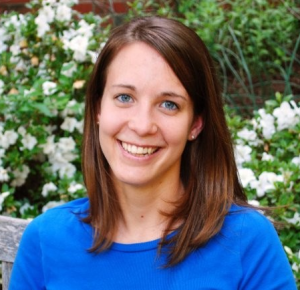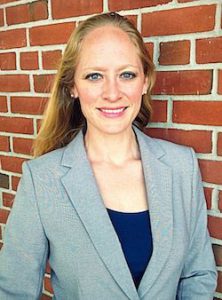Research from two graduate students in the UF Land and Water Lab is earning recognition at the national and state level. Dr. Sam Smidt, assistant professor of watershed science in the UF/IFAS Soil and Water Sciences Department, leads the research group. The students he advises, Gretchen Stokes and Trista Brophy, are pursuing an Interdisciplinary Ecology doctoral degree in the UF/IFAS School of Natural Resources and Environment.
“I am extremely proud of the work Gretchen and Trista are doing,” Smidt said. “Their research is important and it’s nice to see others recognize that as well.”
Gretchen Stokes

Stokes recently received an Outstanding Student Presentation Award from the American Geophysical Union (AGU) Fall Meeting 2020. Her research, COVID-19 pandemic impacts on global inland fisheries, provides a global snapshot of expert-perceived impacts of COVID-19 on freshwater fisheries and their relationship to reported fish catch. Data were compiled from an online survey of fisheries professionals distributed in June 2020. It yielded 438 responses from 79 countries and 93 unique hydrological basins.
“The COVID-19 pandemic offered a unique opportunity to examine its effects in real-time,”
Stokes said. “We noticed an encouraging environmental narrative emerging from widespread lockdowns, but suspected this might not be the case for fisheries because of the interconnected relationships between fish and people.”
She and a team of researchers found the fisheries most important for food or income also appeared most negatively affected by the pandemic.
“The complexity of fishery responses reflects the complexity of the pandemic,” she explained. “It also provides an opportunity to assess and reimagine our relationship with the natural world in ways that promote greater flourishing.”
The research also appears in the Proceedings of the National Academy of Sciences (PNAS) November 2020 journal.
“I am grateful for the opportunity to be a part of such a talented team of researchers in an ongoing collaboration between the UF Land and Water Lab, the U.S. Geological Survey’s National Climate Adaptation Science Center, and the Food and Agriculture Organization of the United Nations,” added Stokes. “I felt a real sense of responsibility being entrusted with the perspectives of over 400 fisheries professionals around the globe and am honored to share our work with national and international audiences through AGU and PNAS.”
Trista Brophy

Brophy’s research, Relating Land Cover Change to Runoff Distribution Using NASA Earth Observations in Riley County, Kansas, earned her two awards. She won the Best Student Presentation Award in the Geology and Society Division of the Geological Society of America (GSA) 2020 Annual Meeting. Brophy also was a runner-up in the Best Graduate Student Poster Award at Kansas Governor’s Water Conference.
“Receiving recognition by the local practitioners who work in the community where I conducted my research is an incredible honor because they understand first-hand the significance of the work and recognize the value of my small contribution to the bigger picture,” she said. “Being selected for an award at the national level not only for the quality of my presentation but for its connection of geology and society was an honor and a positive reinforcement that the work I do matters.”
Flooding in Riley County, Kansas, as in other parts of the United States, has become more common. Brophy examined how changes in land use and land cover as well as seasonal vegetation variation may contribute to increased flooding occurrences and severity. She did this through a traditional method using a standard formula and then used a more dynamic method which included vegetation data from the Landsat satellite mission.
“We use technology every day but often take its power for granted. The work I am doing uses that power to bridge the divide between available data and important decision making,” Brophy explained. “I am proud to work with a team of researchers and collaborators to leverage data and computing tools to address important societal issues such as extreme weather, flooding, and urban planning challenges and I look forward to seeing the possibilities as the relationship between technology and society continues to evolve.”
Research in the Lab
Smidt says both types of research are a good example of the work underway in his Land and Water Lab.
“Our work is very applied, so we are always looking for ways to connect with and serve society. But what is really exciting is how our time spent on student development has set our students apart on the national level,” Smidt explained. “We are a very collaborative bunch, and everyone is invested in each other’s work. These awards are truly a reflection of our work as a lab team.”
You can learn more about the UF Land and Water Lab here: https://www.landandwaterlab.org/
 0
0
